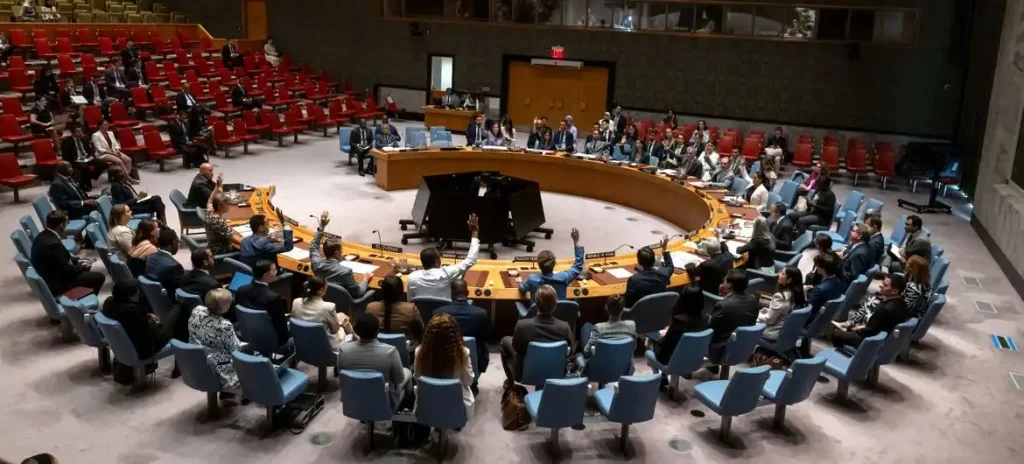The United Nations Security Council unanimously approved a resolution on Tuesday, July 15, 2025, extending the mandate of the UN Integrated Office in Haiti (BINUH) until January 31, 2026. U.S.
Ambassador Dorothy Shea emphasized that the extension will bolster Haiti’s path toward democratic stability, urging global support.
“Our collective efforts can secure a just and peaceful future for Haitians,” she told the Council.
Haiti’s Struggles
Haiti, especially its capital Port-au-Prince, has been gripped by gang violence since 2020, with armed groups controlling over 80% of the city.
The unrest is spreading, displacing approximately 27,000 people from the central region last week due to recent gang attacks.
BINUH’s continued presence aims to address this escalating crisis and support governance efforts.
U.S. Policy Contrasts
The resolution, co-drafted by the United States and Panama, highlights international cooperation, yet contrasts with U.S. domestic actions.
The Trump administration has ended Temporary Protected Status (TPS) for hundreds of thousands, including 500,000 Haitians, 350,000 Venezuelans, 160,000 Ukrainians, and others from Afghanistan, Nepal, and Cameroon.
Legal challenges persist for some, while 250,000 Venezuelans and thousands of Syrians retain TPS until September.
TPS for Ethiopians ends in December, Yemenis and Somalis in March 2026, and Salvadorans in September 2026.
Under the Biden administration, TPS protections expanded to nearly 1 million Venezuelans and Haitians.
Looking Forward
The extension signals a commitment to Haiti’s recovery, though challenges remain. Further updates on implementation will be monitored as the situation evolves.




















